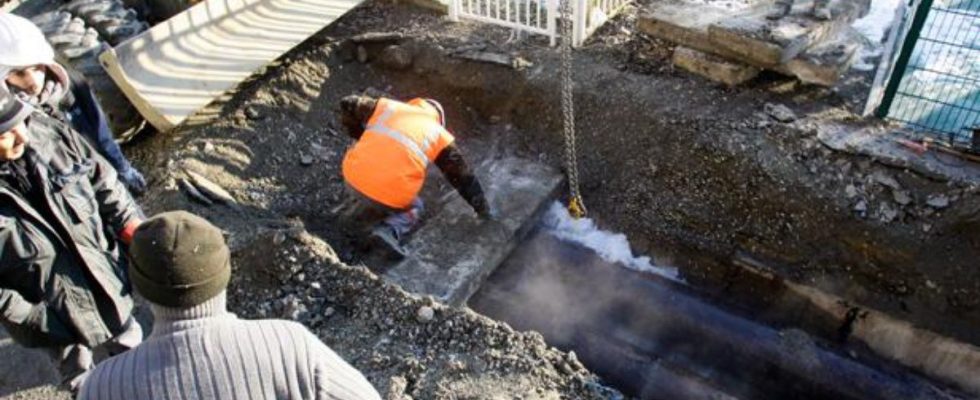It has been just three months since the management of drinking water has returned to public ownership, in the metropolis of Bordeaux, whose networks were previously managed by the Suez group. And if it is outrageously annoying for a resident to notice a water leak in his street and sometimes his delay in taking charge, things should gradually improve. If the private operator has a contract of six to seven years, the public operators work for a longer period. “We have all the more responsibilities when it belongs to us and the organizing company is in tune with its public operator”, points out Sylvie Cassou-Schotte, president of the Bordeaux management.
What current balance sheet?
According to the observatory of public water and sanitation servicesthe average yield of water services stands at 80.1% in 2020. The report specifies that “moreover [sur la base de 5.597 observations], 10% of users come from a service whose network efficiency is less than 65.6% and 10% come from a service whose network efficiency is higher than 90%” knowing that the lowest yields concern almost exclusively of “small” rural services and the best returns from large urban services. The Bordeaux metropolis is quite a good student with 84% performance and is aiming for 87% in the coming years. It should be noted that it is currently impossible to offer a network with a yield of 100%, without any losses.
“We have given ourselves technical means to prevent leaks and even in public service delegation, it was already a major concern”, explains Sylvie Cassou-Schotte. The network of the metropolis extends over more than 3,200 kilometers and it is very old, especially in the historic center of Bordeaux. “We are a city on the water, it’s Swiss cheese,” she comments. To appease the exasperation of local residents a little, the president of the board insists on the fact that the water (from these leaks) is not completely lost, since it returns to the ground.
How to act against leaks?
Depending on the nature of the leak, it is not always possible to treat it in twenty-four hours. “Invisible leaks are the ones that take the longest to become known, sometimes up to 45 days,” says the president. Our priority in management will be to act as quickly as possible and in the most efficient way. “About 90% of leaks are repaired in 72 hours, but for the remaining 10%, it is more complex and the intervention can be much heavier. During 2023, the management will develop a diagnosis and an investment plan on this subject, even if it does not start from a blank sheet.
In 2021, 900 fixed acoustic sensors were installed on the network which is now well meshed and this makes it possible to detect anomalies by sector. As there is a seasonal nature of the leaks, linked in particular to temperature changes, the management would also like to temporarily increase the workforce by ten people currently. Every two years, the entire maze of the Bordeaux network is fully inspected.
For further ?
The reuse of wastewater, once treated, for certain uses (car washing or lawn watering) could be envisaged if new constructions were equipped with double pipes. Of course, this would concern buildings sufficiently close to one of the seven wastewater treatment plants in the conurbation.
“We overexploit our deep aquifers, we have known this since 2000, and we must change our behavior. Twenty years is nothing for this type of project, for which a long time is necessary in order to intelligently modernize the network”, points out the president of the management. The sanitation network will be managed in three years, in the Bordeaux metropolitan area.

